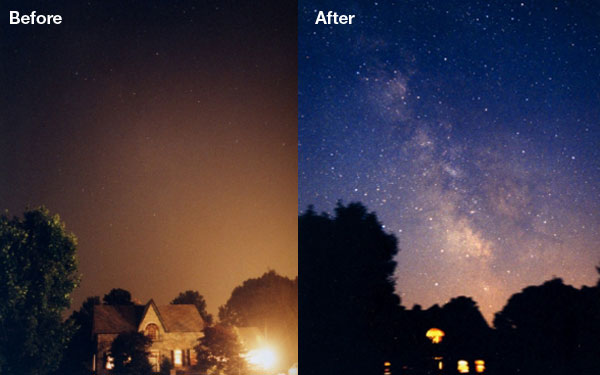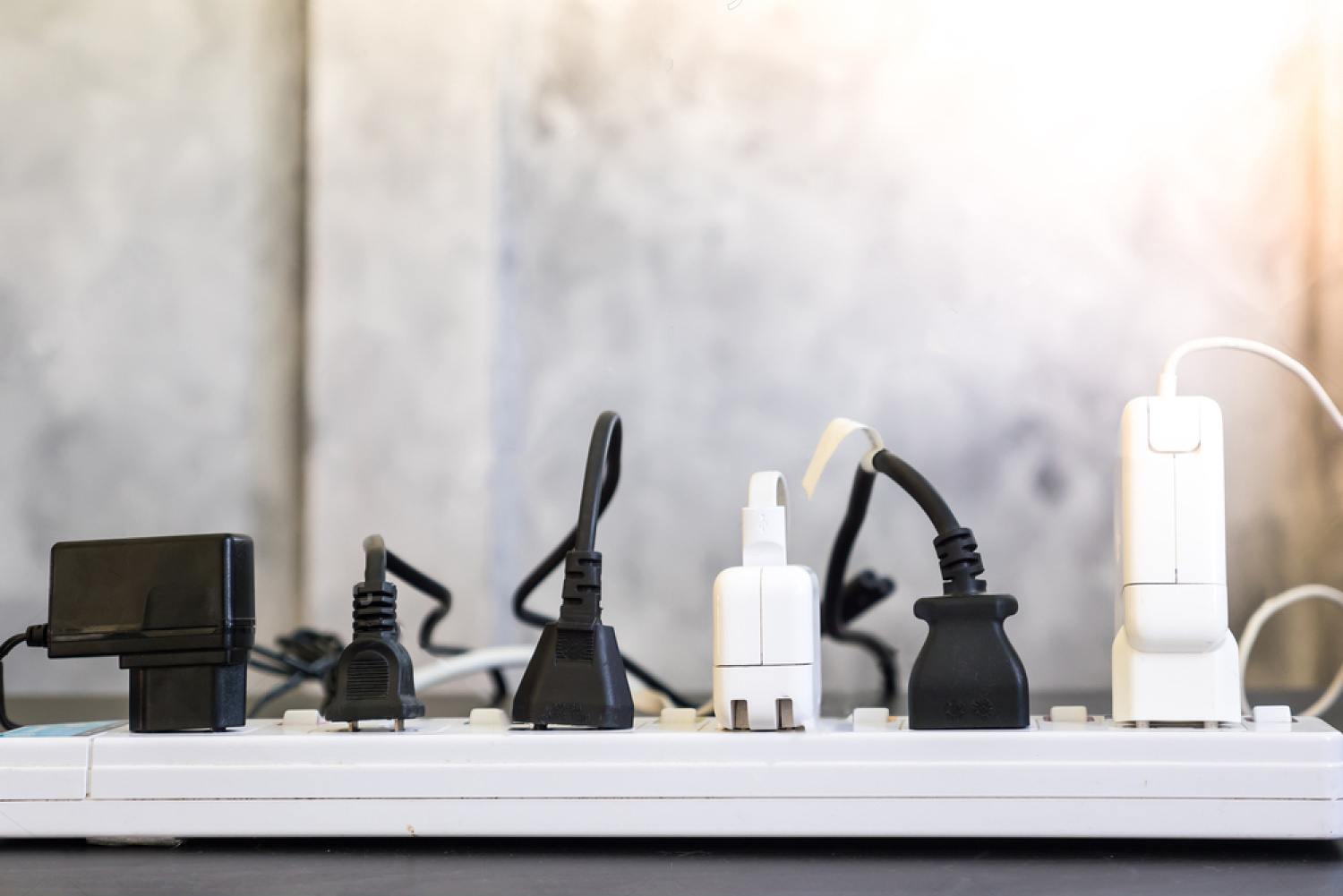Have you ever noticed how when you are away from heavily populated areas that the night sky is filled with stars? So why is it that you can’t see the same stars when you are in the city? The answer is light pollution! Thats right, light is considered a pollutant!
Light pollution is the obtrusive, excessive and unnecessary use of light used for advertising, security, street lighting, etc. that becomes misdirected and filters out towards the sky. This misdirection is due to poorly designed lighting installations and can be an issue for more than one reason. There are three different types of light pollution that occur as a result of poorly designed lighting:
Glare Light
Glare is caused when the excessive brightness of a light causes light scattering in the eye and reduces the contrast of what the eye can see. This reduced contrast can make it extremely difficult to distinguish scenes and settings and can be extremely hazardous when driving.
Glare light towards the eyes can cause temporary blindness and constant exposure to glare can have longer effects on the health of your eyes and it can worsen with age.
Light Trespass
Light trespass is the unwanted light entering a property where it is not needed, for example, street lights entering through a bedroom window at night. Not only can unwanted light be annoying while you are trying to sleep, but having a disrupted sleep can also be damaging on your health.
Skyglow
Skyglow is when the overflow of many sources of lighting brightens the sky over inhabited areas. In other words, when there are too many bright lights outdoors in one area, it can illuminate the night sky. This form of light pollution is of greatest concern to astronomers who study the night sky. The brighter the skyglow, the lighter the night sky and therefore the less celestial objects can be seen and studied.

Why is light pollution bad?
First and foremost, light pollution is a large form of energy wastage. Lighting that emits too much light or is focused when and where it is not needed (i.e. upwards towards the sky) can have large economic consequences, as the wasted energy that is used to produce this light can contribute heavily to greenhouse gases and unnecessary expenditure.
Light pollution can also have environmental consequences and can be detrimental for both flora and wildlife that inhabit the areas. All living creatures rely on the steady rise and fall of the sun to regulate body patterns and quality of life. Their natural migratory and breeding patterns can be affected along with their ability to interact with one another.
As the rhythm of life is dependent and coordinated by the natural rise and fall of the sun, disrupting the pattern can severely impact the ecological behaviour.
The health of humans can also be affected by light pollution for almost the same reason. When we are exposed to larger amounts of light when we shouldn’t be, such as at night when we are trying to sleep our melatonin levels are suppressed. This can lead to many different issues such as sleep disorders, lowered immunity levels and increased levels of anxiety.

What can be done?
While it is understood that there are necessary reasons that areas need to be lit up during the night, such as for safety on the streets and the ability to see in the dark, there are ways that it can be reduced around the home.
- The most obvious way to curb your contribution to light pollution around the home is to switch off lights when they are not needed. Do not light up your front and backyard when they are not in use. This will also save you a large amount of money on your energy bills!
- Have a motion sensor installed to switch your outdoor lights on and off when appropriate.
- Replace your high-energy bulbs with much more energy efficient LED ones to reduce the carbon emissions that are being discharged.
- Properly shield outdoor lights to focus the light where needed and avoid any misdirection.
- Use dimmers where possible to control the amount of light that is being released.



